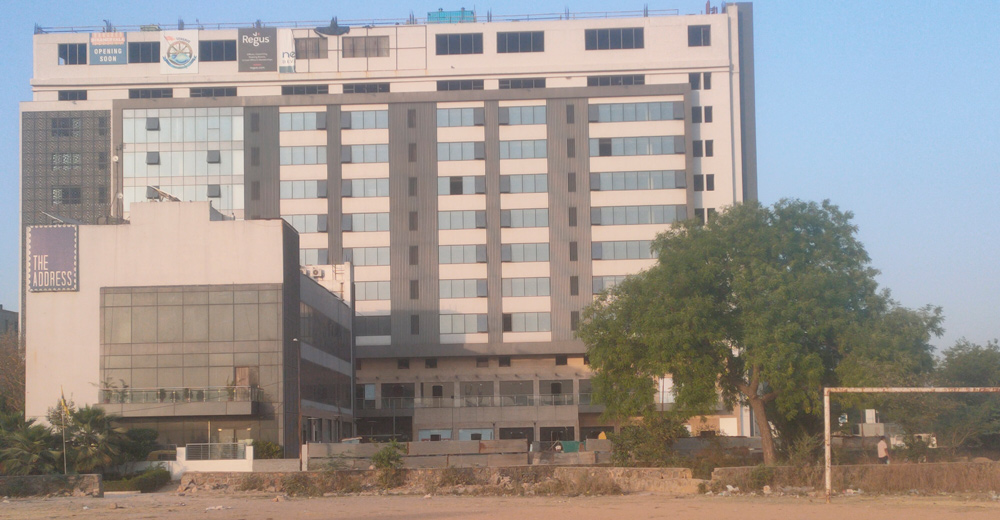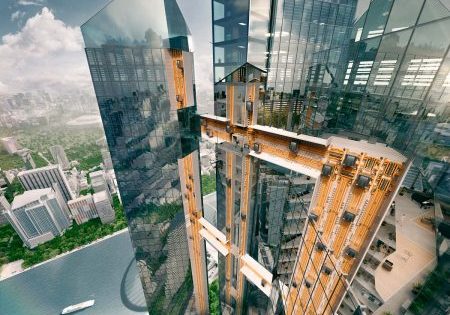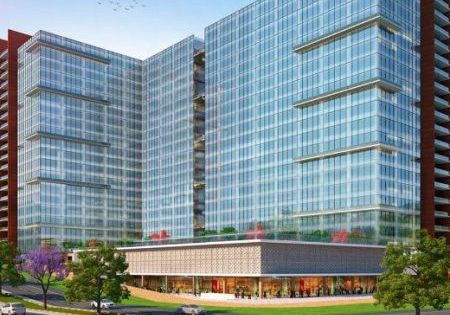Your author examines the significance of elevators while conducting an office space search in India’s National Capital Region (Delhi-NCR).
by Dr. Malini Saba; photos by Gagandeep Kaur
Where would we be without elevators? As available land space shrinks each passing day, eventually ceasing to exist in some areas, obviously the only way to create new infrastructure is to go higher, where the sky is quite literally the limit! While we all want to be healthy and opt for stairs, climbing so many floors on the way to the office is not a task most people would like to attempt on a daily basis.
Clearly, elevators are now an indispensable part of the modern-day infrastructure, only growing more robust, sleek and innovative. From enabling people to climb multi-story buildings in a matter of minutes to transporting big cars to the top floor, elevators have come a long way from being a simple pulley-lever system.
The ground reality is that some of the nicer, swankier office buildings end up being located at a considerable distance from CBDs or prime areas. The cost factor is also considerably higher, while daily access can be a problem for your staff members given the distance to be covered. So, sometimes, you need to make do with a “not so new” or less modern-looking building instead.
However, not many people realize there is a correlation of sorts between the quality of elevators in a building and the type of office space you would find awaiting you on reaching the specified destination upstairs. A well-maintained lobby with an efficiently running set of elevators usually leads you to an equally appealing and well set up office, and vice versa.
Of course, it could be a coincidence or an aspect of project maintenance that exemplifies life in the “new normal,” post-COVID era we are facing at present. For me, it provided a hitherto unnoticed indicator, which seems capable of redefining the office search process, especially given that the process of shortlisting offices gets managed largely on the basis of images and videos, with actual site visits being few and far between.
Let’s begin with the concept of vertical transportation (VT) itself and why we feel safer while visiting prospective offices in a building that has well-maintained elevators.
Evolution of Elevators
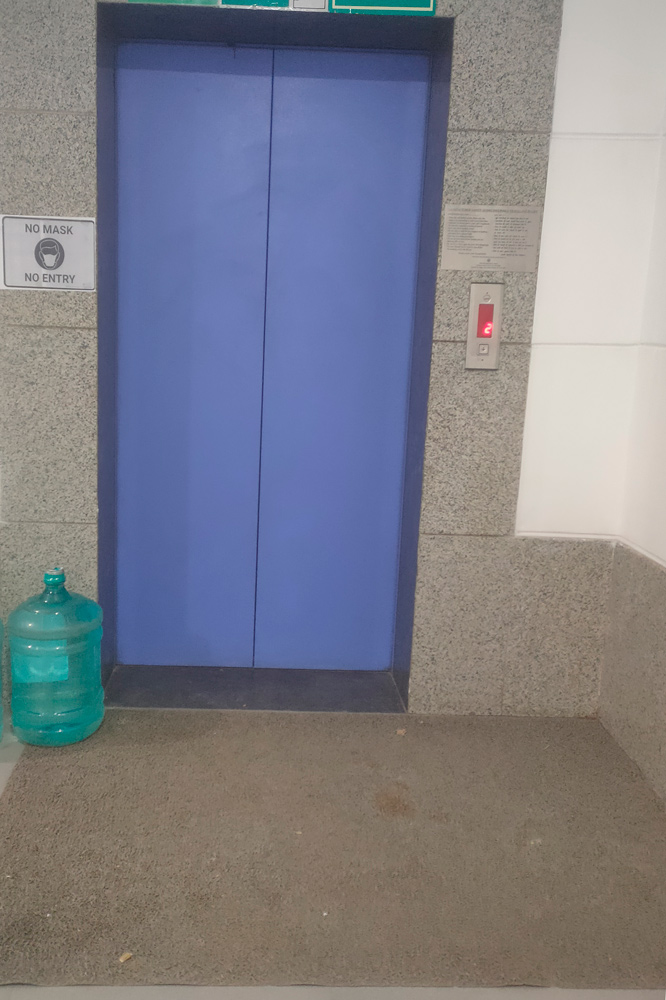
VT through elevators or lifts is not a novel concept but one that is centuries old. Ancient Egyptians are said to have deployed the streamlined pulley system that not only carried materials to greater levels, but men, too! Hydro power was often rumored to be the source of power for such lifts. Romans, too, were supposed to have a fondness for this technology, which they used to stage dramatic gladiator entrances to the arena.
Elevators in corporate spaces were witnessed much later and in a far less dramatic manner. Elisha Graves Otis is credited with introducing the first safety device for elevators in 1852, preventing them from plummeting down in case the hoisting cable broke. Elevators were fitted with evolving safety devices and, eventually, microprocessors, to automate them completely.
A Key Factor
Elevators should be one of the most important factors during your office space search. Here’s why:
Ensuring the Safety of Those at the Office
Irrespective of their hierarchy, your employees should be safe and taken care of in and around the office. Considering a good quality elevator is the mark of a good office space that will have a positive impact on your workforce.
Expediting Accessibility Within the Space
An elevator opens doors to many spaces, quite literally. If your offices will be spread across multiple floors, then internal elevators or escalators are important, as they will help your employees cut down their time of climbing up and down the stairs. After all, we don’t want most of them constantly being late or missing their meetings and deadlines, do we?
Verifying the Capacity and Requirements
Different office spaces have different volumes coming in and out of the building every day. Unlike Mumbai’s local trains, a lift meant for 500 kg cannot accommodate a rush-hour crowd of twice or thrice that weight. Checking the elevator capacity during your office search can help determine if they can regularly handle the influx and outflow of people working in your office.
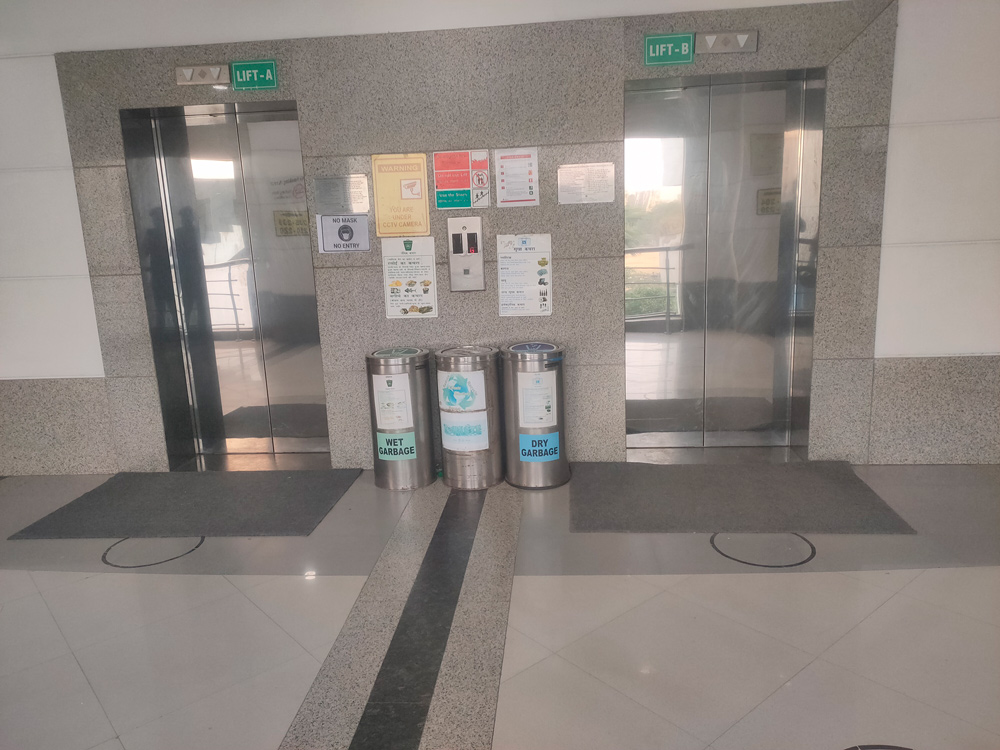
Assessing the Space Taken by the Elevator
Is the row of elevators taking up too much space? It might reflect on the other side of the wall and might come off as an unpleasant surprise when you are taking an entire floor in a multi-story building. Assessing the space required for the elevator shaft helps you get a clearer picture of the actual space available for your workforce.
Basic Checklist
While traveling inside the cab during the office search process, ensure the following:
- Keep an eye on the door; confirm that it opens and closes smoothly on every floor.
- Look out for damages across all surfaces; maybe heavy goods are being transported in passenger lifts.
- Check the lights; inquire how quickly they replace the fused or broken bulbs.
- Check that the emergency phone is working and that you can be connected to the building security or emergency operator if the need arises.
Before entering the cab or immediately after exiting, do a similar exercise again with the door panels, call buttons and lobby lights.
Elevators are an integral part of daily life and one on which we simply shouldn’t compromise. Maybe you end up paying a slightly greater amount per square foot toward your office purchase or rent, but believe me, it’s well worth having peace of mind instead of frequently complaining and repeatedly giving a piece of your mind to the maintenance staff.
Get more of Elevator World. Sign up for our free e-newsletter.
